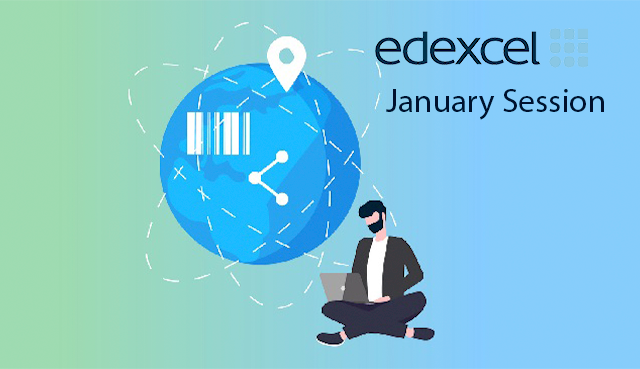Mastering Edexcel OLevel ICT Skills for the Digital Age

About Course
Mastering Edexcel OLevel ICT Skills for the Digital Age.
The course Mastering Edexcel OLevel ICT Skills for the Digital Age is made to give students the abilities and information necessary to succeed in the quickly evolving digital world. The course covers a wide range of information and communication technology (ICT)-related topics, including networks, databases, programming, computer hardware and software, and multimedia.
The goal of the course is to assist students improve their digital literacy, critical thinking, and problem-solving abilities as well as their capacity for effective technological communication. Students will also learn how to utilize technology responsibly and safely, as well as the ethical and societal consequences of technology.
The course normally includes a mix of online lectures, tutorials, hands-on activities, and exams. Textbooks, online classes, videos, and practice exams are just some of the materials available to students. Additionally, they will have the chance to communicate with their professors and fellow students through online discussion boards, study groups, and other cooperative endeavors.
Students will be prepared to take the Edexcel O-Level ICT exam, which is accepted by universities and businesses all over the world, by successfully completing the Mastering Edexcel OLevel ICT Skills for the Digital Age course. Additionally, they will have built a solid foundation in ICT that can position them for further study or professions in this rapidly expanding industry.
Students will get a thorough understanding of information and communication technology (ICT) and its uses in the digital age through the course Mastering Edexcel OLevel ICT Skills for the Digital Age. ICT-related subjects covered in the course span widely, including:
- Hardware and software for computers: The fundamental components of a computer, such as the CPU, memory, storage devices, input/output devices, and peripherals. Operating systems, software programs, and computer networks will all be covered in class.
- Algorithms, data types, control structures, and programming languages like Python, Java, and C++ are all included in the fundamentals of programming.
- Data modeling, database design, data processing, and SQL are some examples of database principles.
- Multimedia: A term used to describe the concepts behind audio, video, graphics, and animation.
- Networks: The fundamental concepts governing LAN, WAN, and WLAN, as well as network topologies, protocols, and security.
- The ethical and social ramifications of technology, such as those related to cybercrime, privacy, security, and intellectual property.
Through a variety of hands-on activities and examinations, students will have the chance to improve their digital literacy, critical thinking, and problem-solving abilities throughout the course. Additionally, they will discover safe and ethical ways to use technology.
In general, the Mastering Edexcel OLevel ICT Skills for the Digital Age course is a great method for students to build a solid foundation in ICT and to get ready for future education or professions in this fascinating and quickly expanding industry.
A variety of resources are offered in the course Mastering Edexcel OLevel ICT Skills for the Digital Age to aid with learning and academic success. Some of the included materials are listed below:
- All of the topics covered by the Edexcel OLevel ICT syllabus are covered in the course’s video lectures. The courses are given by knowledgeable lecturers who clearly and concisely explain the concepts.
- Examining your knowledge and comprehension of the subjects presented in each module is made easier by the course’s interactive quizzes. The tests are made to help you review what you’ve learned and pinpoint any areas that may require more research.
- Practice exercises: The course offers a variety of practice tasks to help you hone your abilities and put your information to use in practical situations. The exercises are made to boost your self-assurance and get you ready for the Edexcel OLevel ICT exam.
- Assignments: The course includes assignments that let you use your skills and knowledge to solve challenges in the real world. The tasks are made to test you and aid in the growth of your critical thinking abilities.
- Support materials: To aid you in your learning process, the course offers a variety of support resources, including as study guides, glossaries, and reference materials.
Course Content
Course Materials
- 00:00
Introduction of ICT
Chapter-1. Digital Devices
Chapter-2. Memory and Processor
Chapter-3. Digital Communication
Chapter-4. Networks
Chapter-5. Applying ICT
Chapter-6. File Management
Chapter-7. Word Processing
Chapter-8. Spreadsheets
Chapter-9. Practical
Chapter-10. Software
Chapter-11. Operating Online
Chapter-12. Online Goods and Services
Chapter-13. Presentation
Chapter-14. Graphics
Chapter-15. Web Authoring
Chapter-16. Database Management
Test Yourself
Practical
Student Ratings & Reviews

